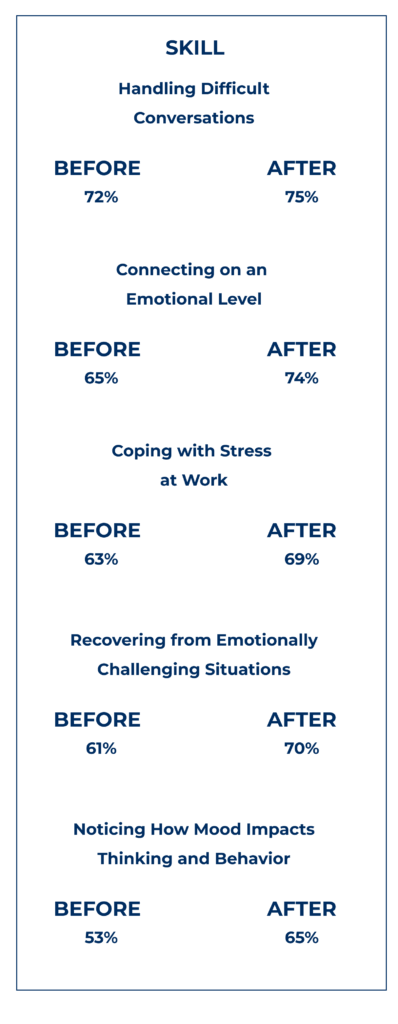The Warren Police Department serves a diverse community of approximately 140,000 residents in suburban Detroit. Its mission—“to serve the community and protect the lives, rights, and property of all people in the City of Warren with integrity, equality, and justice”—is supported by a vision of continuous growth and adaptation to meet evolving public needs. Recent departmental initiatives have reinforced officer wellness, professional standards, and community policing efforts. Amid national conversations on bias, accountability, and use-of-force, Warren PD sought not just compliance but transformation—starting from within.
Warren Police Department

Warren Police Department
The Challenge
Captain Brent Chisolm, Administrative Services Bureau, Warren Police Department, served in a leadership role where he was responsible for reviewing incoming complaints and use-of-force incidents. He reviewed body cam footage to gain insights into what went wrong during high-pressure situations.
“The body cameras are relatively new to law enforcement, Chisolm shared, “but what they do give leaders is the ability to really look at exactly the patterns leading up to the moment when things go wrong.”
As he analyzed these recordings, he found that officers were making poor decisions in critical moments—decisions that didn’t align with their training or character and often had tragic consequences for their careers and the department.
This disconnect between intention and behavior sparked a deeper inquiry. Why were officers, who clearly knew the right thing to do, still faltering under pressure? What was causing that split-second lapse in control or judgment?
“Something is happening in that moment—that critical second—where things go bad,” said Chisolm. “We needed a way to bridge that disconnect so that what officers know in theory is what they can actually do in practice, especially under stress.”
That bridge was emotional intelligence.
The Solution
Warren PD’s emotional intelligence (EQ) training program was designed as a department-wide effort to embed EQ into the organization’s culture to build officer resilience, improve decision-making, and reduce use of force incidents.
As part of the department’s annual training, Captain Brent Chisolm and four carefully selected team members completed TalentSmartEQ’s Mastering Emotional Intelligence Level 1 Trainer certification program. This core team designed an 8-hour training day to be included in training for every sworn member of the police department over 15 weeks.
The initiative included several key components:
- Personalized EQ Assessment
Each officer began the program by completing the Emotional Intelligence Appraisal®, a self-assessment tool that provided personalized results to help them identify strengths and development areas across the four core EQ skills: self-awareness, self-management, social awareness, and relationship management. - Phased Department Rollout
The rollout began with Warren’s Peer Support Team—a group already focused on officer wellness and well-positioned to embrace and champion EQ. Once this first cohort was on board, the training expanded to the entire department, including officers, supervisors, and leadership.- Participants: 200+ sworn members
- Breakdown: 67% Police Officers, 14% Corporals, 19% Sergeants and above
“We started with the people most open to it,” said Chisolm. “Our goal was to get them on board and then use that momentum to expand the training, as part of our longer-term cultural strategy.”
- Reinforcement Over Time
To sustain learning beyond the training, Warren PD implemented:- Regular email nudges: Practical reminders to keep EQ skills top of mind in daily work
- Planned retesting: Officers will complete the Emotional Intelligence Appraisal® again the following year to track growth and identify ongoing development needs.
- State Funding
Captain Chisolm successfully applied to have the Emotional Intelligence training MCOLES 302 and CPE funds approved for use by Warren PD as continuing professional education hours, and secured state grants to cover the cost of the training.
This phased approach reflects Warren PD’s commitment to building a department-wide culture of emotional intelligence—one that supports officer well-being, consistent service, and better outcomes under pressure.
Results
The implementation of EQ training at Warren PD has already begun to yield meaningful cultural and behavioral changes across the department.
As part of the program, participants took part in an Impact Study to assess how emotional intelligence training influenced their on-the-job performance. Officers reported using EQ skills most frequently in high-stakes situations:
- 47% said the training helped them most with problem solving
- 42% reported EQ training helped with decision making
- 34% cited stress management
- 31% pointed to adaptability and flexibility
These results highlight how EQ strategies are being applied in real-world moments—where decisions matter most.
Officers were also asked to rate their skills before and after training across five core emotional intelligence skills:
| Skill | Before | After |
| Handling Difficult Conversations | 71% | 75% |
| Connecting on an Emotional Level | 63% | 74% |
| Coping with Stress at Work | 63% | 69% |
| Recovering from Emotionally Challenging Situations | 61% | 70% |
| Noticing How Mood Impacts Thinking & Behavior | 53% | 65% |

These shifts reflect growing self-awareness, stronger self-regulation, and more thoughtful decision-making—especially in emotionally charged situations.
“Emotional intelligence sometimes is about what we don’t see. And we’re not seeing the same problems and use-of-force issues that we had before,” said Chisolm.
With leadership modeling the behavior, peer support reinforcing it, and officers themselves reporting measurable gains, Warren PD isn’t just building skills—they’re cultivating a new standard for how officers show up, support each other, and serve their community.
More Client Success Stories
Mendocino County Health Centers partners with TalentSmartEQ to embed emotional intelligence across its workforce—reducing turnover, lowering stress, and strengthening patient care.
Vetcor has integrated emotional intelligence training into its Emerging Leaders Program to equip high-potential leaders with the self-awareness, communication skills, and relationship-building strategies needed to lead effectively and drive lasting cultural impact.
Northwell leverages TalentSmartEQ's assessments to improve EQ skills at all levels of the organization, helping to increase leadership effectiveness, improve patient relationships, and increase team collaboration.


